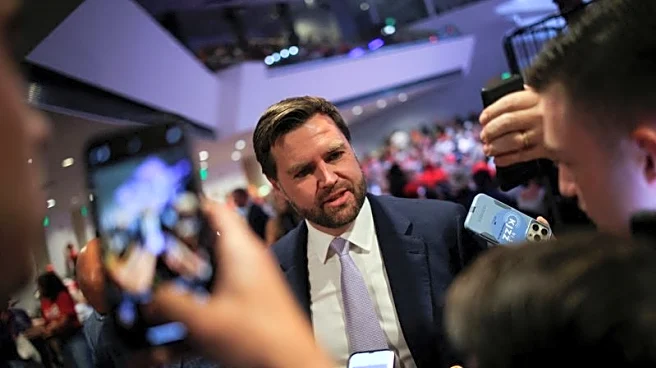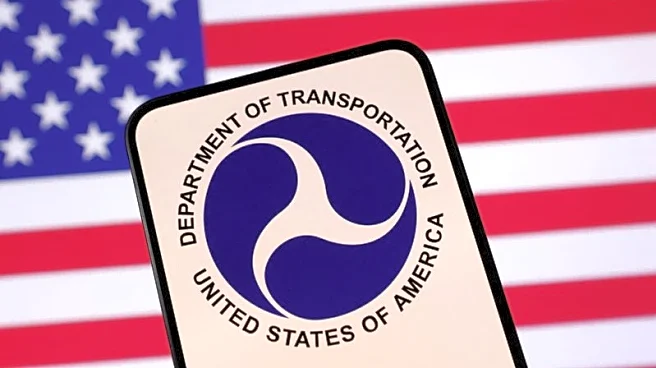What's Happening?
President Trump is set to meet with top congressional leaders at the White House as the deadline for a potential government shutdown approaches. The meeting comes less than 48 hours before the government could shut down if a deal is not reached. The impasse stems from disagreements between Republicans and Democrats over a temporary funding bill. House Republicans have passed a bill to keep federal spending levels flat until November 21, but it failed in the Senate. The Senate plans to revisit the bill, requiring bipartisan support to pass. Democrats are seeking assurances on extending Affordable Care Act subsidies and reversing cuts to Medicaid, which Republicans have resisted, preferring to fund the government first and negotiate later. The meeting is crucial as it includes both Democratic and Republican leaders, aiming to resolve the funding issue and prevent a shutdown.
Why It's Important?
The potential government shutdown could have significant impacts on various services and federal employees. Essential services like Social Security and Medicare would continue, but nonessential services could be delayed, affecting benefits and operations such as National Parks and environmental inspections. A shutdown could lead to furloughs for hundreds of thousands of federal workers, with the White House's budget office instructing agencies to prepare lists of workers for permanent layoffs, raising the stakes. The meeting between President Trump and congressional leaders is critical in determining whether a resolution can be reached to avoid these disruptions. The outcome will affect public policy and the economy, with both parties needing to compromise to prevent negative consequences for the American public.
What's Next?
If the meeting at the White House fails to produce an agreement, the government could shut down, leading to widespread disruptions. Democrats are pushing for written commitments on healthcare funding, while Republicans emphasize keeping the government open first. The Senate will attempt to pass the funding bill again, requiring bipartisan cooperation. The meeting's outcome will dictate the next steps, with potential negotiations on healthcare subsidies and spending cuts. Political leaders will need to navigate these discussions carefully to avoid a shutdown and address the broader implications for federal operations and public services.
Beyond the Headlines
The potential shutdown highlights deeper political divisions and the challenges of bipartisan cooperation in Congress. The situation underscores the complexities of negotiating federal funding and healthcare policies, with both parties holding firm on their priorities. The threat of permanent layoffs adds an ethical dimension, raising concerns about the treatment of federal workers and the impact on government efficiency. Long-term, the impasse may influence future legislative strategies and the political landscape, affecting how parties approach negotiations and public policy decisions.










